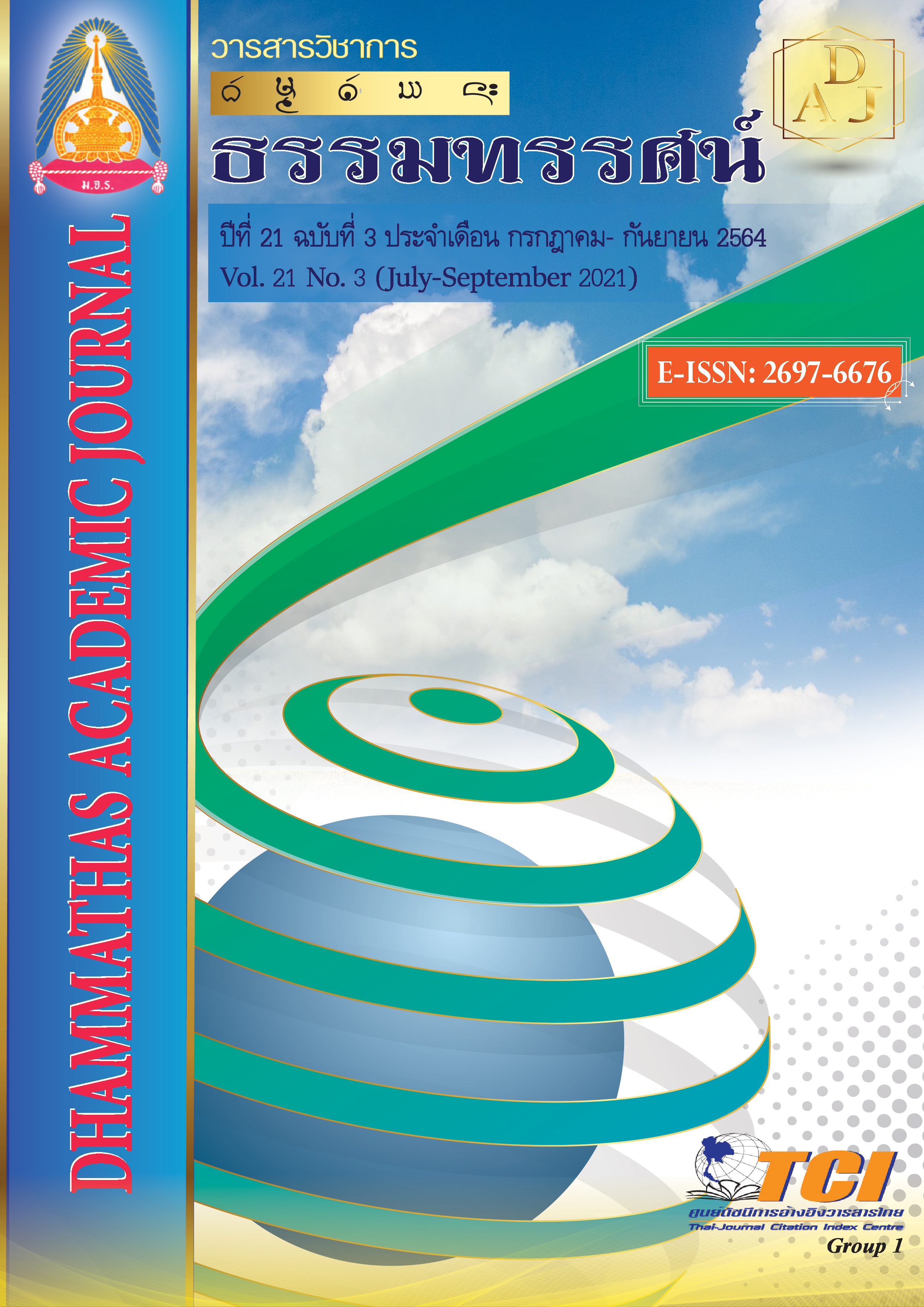The Evaluation of Science Mathematics Program Curriculum for Upper Secondary Students in Buakao School
Main Article Content
Abstract
The present study aimed 1) to evaluate the elements congruence of Science Mathematics program curriculum for upper secondary students in Buakao School, 2) to evaluate quality of learning management of Science Mathematics program curriculum and 3) to evaluate students’ quality in Science Mathematics program curriculum. The sample of the study were 213 consisted of 5 school’s administrators, 10 committee of Science Mathematics program curriculum, 18 teachers in Science Mathematics program curriculum, 90 students in Science Mathematics program curriculum and 90 parents of students in Science Mathematics program curriculum sized by using Krejcie& Morgan table. The instruments used to collect data were 1) questionnaire of elements congruence, 2) questionnaire of learning management quality, 3) questionnaire of students’ quality and 4) unstructured interview. The statistics used to analyze the data were percentage, mean, and standard deviation.
The results of the study revealed as follows;
- The results of evaluation the elements congruence of Science
Mathematics program curriculum for upper secondary students in Buakao School shown that overall of the elements rated in the most level (= 4.56 – 4.88 ), when considered into each aspect shown all aspects rated in the most level.
- The results of evaluation quality of learning management of
Science Mathematics program curriculum yielded that overall of the quality rated in the most level (= 3.60 – 4.93 ), when considered into each aspect pointed out that all aspects rated in the most level.
- The results of evaluation students’ quality in Science
Mathematics program curriculum indicated that overall of students’ quality rated in the most level (= 2.93 – 4.90 ), when considered into each aspect revealed that all aspects rated in the most level.
Article Details
References
กระทรวงศึกษาธิการ. (2551). หลักสูตรแกนกลางการศึกษาขั้นพื้นฐานพุทธศักราช 2551. กรุงเทพฯ: ชุมนุมสหกรณ์การเกษตรแห่งประเทศไทย.
กัญจน์ชญาน์ สรรเสริญ. (2551). การประเมินหลักสูตรการศึกษาศาสตรมหาบัณฑิต สาขาวิจัยและประเมินผลการศึกษา (ฉบับปรับปรุง พ.ศ. 2545) มหาวิทยาลัยเกษตรศาสตร์. (วิทยานิพนธ์ศึกษาศาสตรมหาบัณฑิต). กรุงเทพฯ: มหาวิทยาลัยเกษตรศาสตร์.
ฆนัท ธาตุทอง. (2552). การพัฒนาหลักสูตรสถานศึกษาตามหลักสูตรแกนกลางการศึกษาขั้นพื้นฐานพุทธศักราช 2551. นครปฐม: เพชรเกษมการพิมพ์.
ทิศนา แขมมณี. (2547). ศาสตร์การสอน. กรุงเทพฯ: จุฬาลงกรณ์มหาวิทยาลัย.
ธํารง บัวศรี. (2542). ทฤษฎีหลักสูตร: การออกแบบหลักสูตรและพัฒนา. กรุงเทพฯ: ธนรัช.
บุญเลี้ยง ทุมทอง. (2553). การพัฒนาหลักสูตร. กรุงเทพฯ: จุฬาลงกรณ์มหาวิทยาลัย.
รุจิร์ ภู่สาระ. (2551). การพัฒนาหลักสูตร: ตามแนวปฏิรูปการศึกษา. กรุงเทพฯ: บุ๊คพ๊อยท.
โรงเรียนบัวขาว. (2562). รายงานผลการพัฒนาคุณภาพการศึกษา. กาฬสินธุ์: โรงเรียนบัวขาว.
ศิรินันทน์ พรหมดำรง. (2553). รายงานการวิจัยการประเมินหลักสูตรครุศาสตรมหาบัณฑิต สาขาการพัฒนาหลักสูตรและการสอนสถาบันราชภัฏอุบลราชธานี พุทธศักราช 2541. (วิทยานิพนธ์ครุศาสตรมหาบัณฑิต). อุบลราชธานี: สถาบันราชภัฏอุบลราชธานี
สถาบันการสอนวิทยาศาสตร์และเทคโนโลยี. (2560). หลักสูตรโครงการห้องเรียนพิเศษด้านวิทยาศาสตร์ คณิตศาสตร์ ตามแนวทาง สสวท. และ สอวน. กรุงเทพฯ: สถาบันการสอนวิทยาศาสตร์และเทคโนโลยี.
สรัล เลาพันธ์. (2552). การประเมินหลักสูตรศึกษาศาสตรมหาบัณฑิต สาขาวิชาสังคมศึกษา พุทธศักราช 2538 มหาวิทยาลัยขอนแก่น. (วิทยานิพนธ์ศึกษาศาสตรมหาบัณฑิต). ขอนแก่น: มหาวิทยาลัยขอนแก่น.
สุภาพร เรืองปิยะเสรี. (2551). การประเมินหลักสูตรศิลปศาสตรมหาบัณฑิต สาขาวิชาบรรณารักษศาสตร์และสารนิเทศศาสตร์ คณะมนุษยศาสตร์ มหาวิทยาลัยรามคำแหง. (วิทยานิพนธ์ศิลปศาสตรมหาบัณฑิต). กรุงเทพฯ: มหาวิทยาลัยรามคำแหง.
Byland, H. (2002). What Works : Research-Based Best Practices in Development Education. New York: National Center for Developmental Education.
Mingucci, M. M. (2002). Action Research as ESL Teacher Professional Development. Dissertation Abstracts International, 63(2), 451.
Krejcie, R. V., & Morgan, D. W. (1970). Determining Sample Size for Research Activities. Educational and Psychological Measurement, 30(3), 607-610.
Taba, H. (1962). Curriculum Development Theory and Practice. New York: Harcourt, Brace and World.
Tyler, R. W. (1949). Basic principles of curriculum and instruction. Chicago: The university of Chicago Press.

